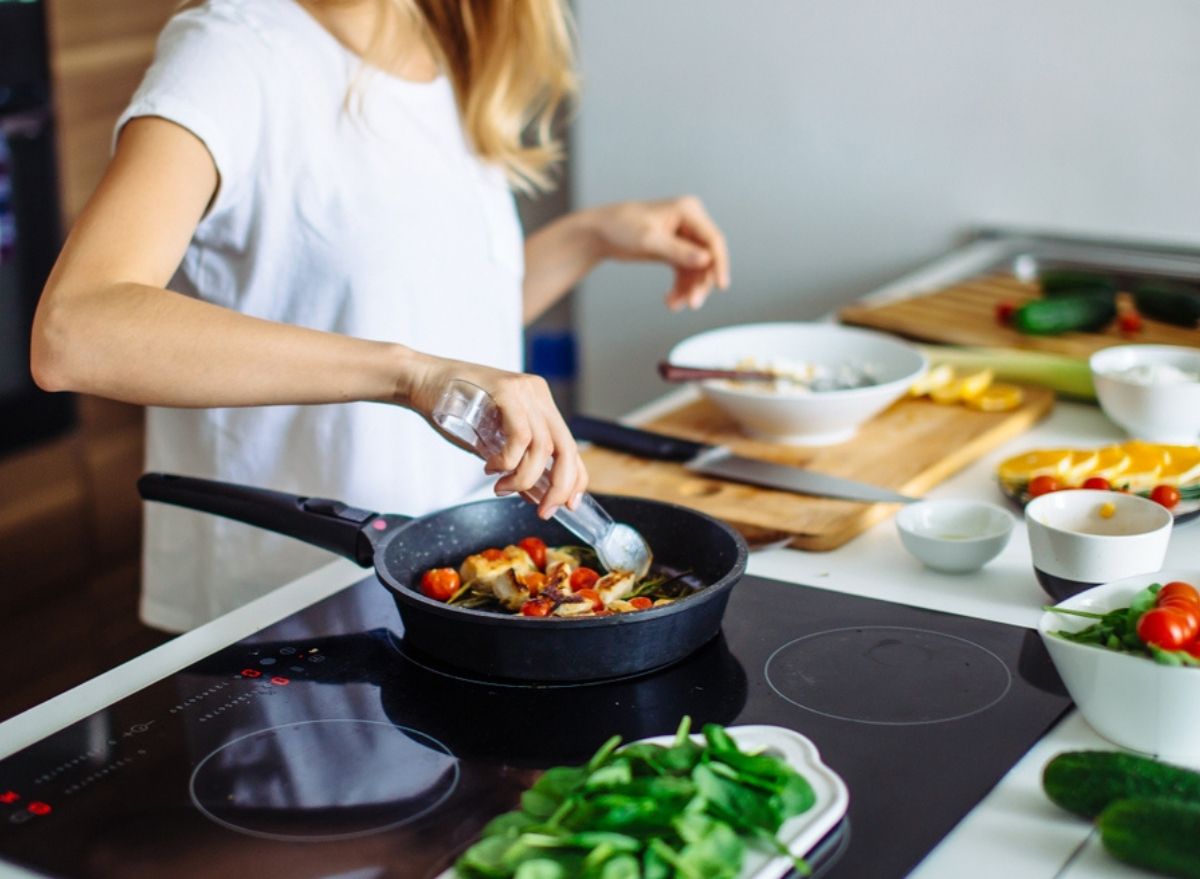The #1 Best Way to Cook to Slow Aging, Says Dietitian

What if we were to tell you that there are specific regions of the world known as longevity hotspots, where more people live to be 100 than anywhere else? These regions are known as the Blue Zones, and they include Sardinia, Italy; Okinawa, Japan; Ikaria, Greece; Nicoya, Costa Rica; and Loma Linda, California. So, it's safe to say that if you're looking for the best way to cook to slow aging, you'll want to take a cue from the "Blue Zone" residents. (And while you're at it, scope out the #1 Best Eating Habit to Slow Aging, too).
"Aging is such a hot topic," says Blanca Garcia, RDN at Health Canal. "But it's not just about avoiding wrinkles; it includes preventing chronic conditions like type 2 diabetes, cardiovascular disease, obesity, and high blood pressure. These conditions cause pain, stress, and faster aging."
The first thing to know about Blue Zone residents is that they cook most of their meals at home. Eating out at a restaurant is reserved for special occasions. Not only that, but they often also grow much of the vegetables and herbs they use right in their own backyard. Cooking at home is obviously more affordable, but there's another advantage, too: you have total control over the ingredients, meaning you can be mindful of how much salt, fat, and sugar is going into your meals.
When it comes to cooking oil, don't expect to find processed options like canola oil or vegetable oil. People who live in the Blue Zones are far more likely to cook with olive oil, which they'll use to drizzle over salads, bake or sauté vegetables, and incorporate into pesto or other sauces and stews. Research has repeatedly shown that olive oil has numerous health benefits, due in part to its high concentration of heart-healthy omega-3 fatty acids.
A 2017 study in Nutrients found that daily consumption of olive oil can reduce inflammation, a root cause of many chronic diseases. A large 2014 review in the journal Lipids in Health and Disease revealed that olive oil was the only fat source linked to a reduced risk of both heart attack and stroke.
Plus, a large 2022 study in the peer-reviewed Journal of the American College of Cardiology concluded that adding olive oil to your diet could lower your risk of Alzheimer's disease, cardiovascular disease, and cancer, as well as your risk of death from Parkinson's disease and respiratory disease. Participants who consumed more than a half tablespoon of olive oil daily had a 19% lower risk of all causes of death compared to those who rarely or never used this cooking oil.
As for how to cook, the possibilities are endless—but Garcia says your best bet is to saute vegetables and proteins with just a small amount of oil. When cooking plant-based proteins like beans or lentils, you don't even need oil, says Garcia—and can simply boil them instead.









